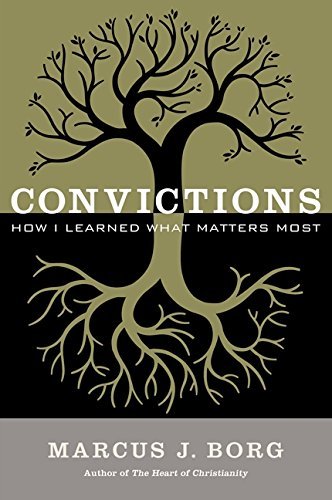What do you think?
Rate this book


Hardcover
First published January 1, 2014
“Salvation is about liberation, reconnection, seeing anew, acceptance, and the satisfaction of our deepest yearnings. Christianity at its best—like all of the enduring religions of the world at their best—is a path to transformation.” (p75)He makes it clear that he's talking about transformation of 'this life,' not one 'hereafter.' Furthermore, he makes it clear that Christian faith is not complying with requirements to 'believe' things found in the Bible that can’t be true.
Faith does not mean believing in the literal-factuality of the stories regardless of how improbable they seem. Rather, faith is about something far more important. It is about our relationship with God—about centering in God, being loyal (faithful) to God, and about trusting in God. Faith is the opposite of hubris and anxiety. (p130)Borg points out that the idea that Jesus "had to die" in order to ransom sinners is a theory developed by Anselm in 1100 AD that leads to a misunderstanding of the significance of his execution.
So the cross of Jesus does matter. Properly understood, it is the heart of Christianity, and it is fitting that it is Christianity's central symbol. But not because it was the way by which Jesus died to pay for our sins. Indeed, that understanding, that misunderstanding, domesticates and obscures the meaning of the cross by speaking of Jesus's death as God's will as part of God's plan of salvation. No longer is it an image of personal and political transformation. But that's what it was in the beginning. (p146)Since Christianity is concerned about "this life," if follows that a Christian's life will have political aspects to it.
In a democracy, politics in the broad sense does include how we vote. But it also includes more: what we support in our conversations our contributions, monetary and otherwise, our actions. Not every Christian is called to be an activist. But all are called to take seriously God's dream for a more just and nonviolent world. (p167)Borg believes Americans could learn a lesson from the book of Amos.
“American individualism and American exceptionalism go together. Amos and much of the Bible challenge both. We need Amos.” (p187)Borg acknowledges the merits of pacifism, though he's in favor of a pacifism that is politically assertive:
“I am realistic enough to accept that the ability to defend one’s country matters in our very imperfect world. But I have become convinced that Christians who oppose war are more often right than wrong. Nonviolent resistance to evil, including the evils of injustice, should be the primary Christian response. If Christians in this country and elsewhere were to do that consistently, what might this world be like?” (208)He closes the book with this comment:
"What’s it all about? What’s the Christian life all about? It’s about loving God and loving what God loves. It’s about becoming passionate about God and participating in God’s passion for a different kind of world, here and now. And the future, including what is beyond our lives? We leave that up to God.” (p231)